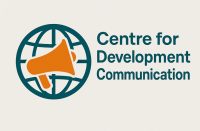Mr. Mohammed Sani Musa, Niger State lawmaker in the Senate and National Information Technology Development Agency, has constructed a mini ICT for N125 million as a constituency project.
Musa, representing the people of Niger East Senatorial District in the Senate, had in 2020 nominated building of ICT centre for youth, Girl-Child education in Paiko community area of Niger State. The ICT according to the master plan was designed to be equipped with laptop computers.
The N125 million ICT centre that is shockingly overinflated, nominated by the Niger state-federal lawmaker was supervised by the National Information Technology Development Agency, an agency under the ministry of communication.
Tracka officials who visited the project for an evaluation said it has been completed, however, the officials disclosed that equipping the facilities with computers which is the cardinal part of the project was not done, while the facility remains dirty and abandoned.
Mr. Ahmed, a community resident while speaking on the project, said it was completed months ago, and, since then nothing has been done and computers not supplied.
Check by MAWA FOUNDATION shows that the Niger lawmaker and National Information Technology Development Agency may have shortchanged the people. Mr. Rufus Ali, a civil engineer who claims to have built ICT centres in Lagos and Abuja, said that amount is enough to build two good ICT centres and adequately equip them.
It is not, however, clear how the Niger lawmaker and National Information Technology Development Agency arrived at building a single mini ICT centre for N125 million.
Constituency projects are nominated by the lawmakers for the needs of their constituents and recommend same to the executive during budgeting; this will help to improve the living condition of the people in their constituents through building local infrastructures.
However, Nigerian experience has shown that Federal Lawmakers do not execute constituency projects as they appear in the national budget, and getting them to account for monies approved for such intervention is always difficult.
And, often community residents are not aware such monies have been given to their representatives, and that makes accountability very difficult.
